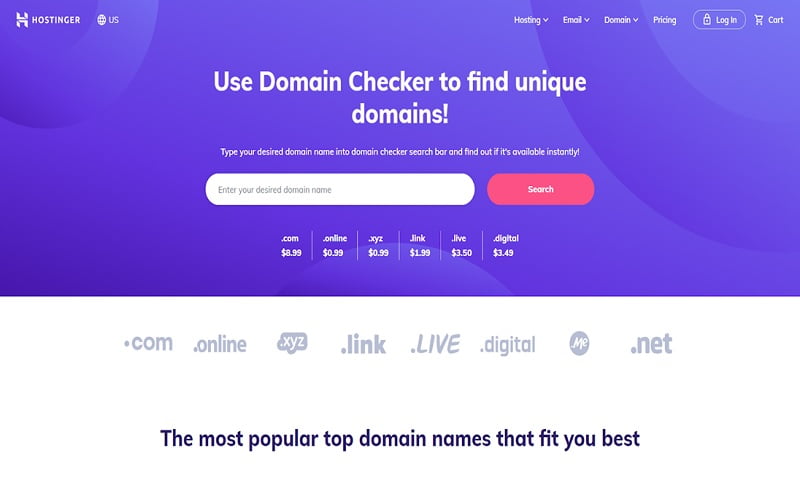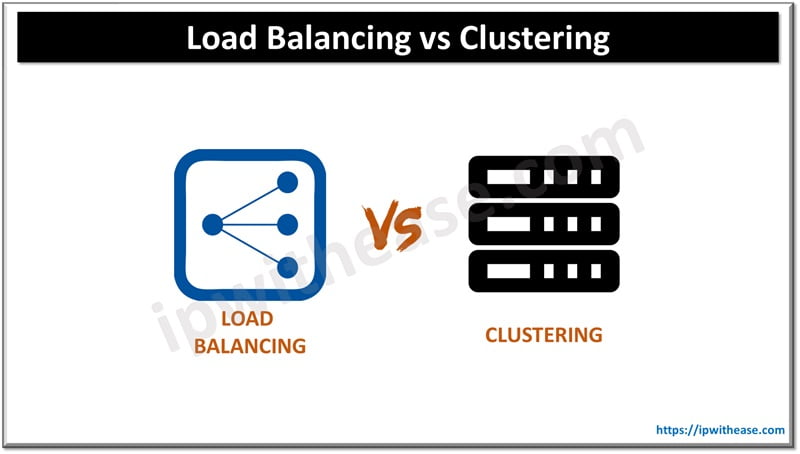A domain name is an integral part of your website. It works as the address letting people access your site online. Having a good domain name can help your website attract more visitors, and one of the factors you need to pay attention to is its domain extension or top-level domain (TLD).
Picking the right TLD for your domain name is essential because it reflects the purpose of a website. However, since various types of domain extensions are available, people tend to get confused when choosing one for their site.
In this article, we will discuss the difference between two of the most popular TLDs, which are .com and .net. We will also look at which one will work best for your website, depending on its purposes and characteristics.
The Difference Between .Com and .Net Extensions
Although both .com and .net extensions are included in the generic top-level domains (gTLDs) group, they have different characteristics.
The .com extension stands for commercial, making it a good choice for various general website categories, including business websites, portfolios, and blogs. It is the most popular TLD used by around 52.3% of global websites as of April 2021.
On the other hand, .net extension stands for network. This TLD is suitable for businesses and organizations providing internet, email, and networking services. According to Statista, it is the fourth most popular TLD globally with a 3.3% market share.
Since .net domains are less popular than .com, they might have a better domain name availability and can be purchased for a lower cost. However, in most cases, .net domains might not be suitable for your branding.
When to Choose .Com
According to the RFC 1591, .com TLDs are intended for companies and commercial entities. However, in practice, this domain extension is used by almost every website that covers general topics.
There are three main reasons why .com domain extensions are highly popular, including:
- It is the most familiar domain extension.
- It may make your website feel more professional and credible.
- It is easier to remember since most users expect a .com extension.
Because of that, you are more likely to choose a .com domain when building a website. However, using this TLD might pose some challenges. Due to its popularity, getting a preferred domain name with a .com extension can be quite challenging.

You may have to use a domain checker tool before deciding on a domain name extension. Most .com domains are also quite costly compared to other TLD options. Therefore, opting for more industry-specific TLDs such as .net, .edu, and .tech can be a good strategy.
When to Choose .Net
This domain extension is mainly used by organizations or companies focusing on network and technology industries such as internet service providers. Other websites that focus on sharing or community might also use .net as their TLD.

Choosing a .net domain over .com might give you some benefits due to its better availability and lower price. However, keep in mind that using a TLD that has no relation to your product or service might hurt your branding in the long run.
Therefore, make sure that your extension of choice fits your website’s characteristics. Another pro tip: when registering a domain name with a .net extension, try to also buy the .com version if possible.
This technique may help you capture all possible traffic and avoid getting your potential clients stolen by another website. As of July 2021, around 53.34 % of all unique registered domain names across the internet are parked domains.
.Com vs. .Net: How They Affect SEO
Technically, your domain extension of choice doesn’t directly affect your position on the search engine results page. Search engines, such as Google or Yahoo!, will treat any TLD equally when deciding on a website’s ranking.
Using .com might give potential visitors more confidence in your website, giving you more chances to rank higher. However, .net domains also possess the same potential as .com when used correctly.
Both of these domain extensions may give you equal SEO benefits as long as you ensure the TLD matches what your website has to offer. Another important factor is coming up with a good domain name to make the best first impression on your potential visitors.
Tips to Choosing the Best Domain Extension
There are several tips you might want to consider when choosing a domain name and its extension for your website. Here are four essential steps that will help you make the right choices.
1. Check Domain Extension Availability
Verisign reported that the .com and .net TLDs had a combined total of 168.0 million domain name registrations at the end of the first quarter of 2021 alone. With this many registered domains, it is important to make sure your preferred name is available to use.
Numerous websites, such as GoDaddy and Name.com, provide domain name checker services to help you with this process. If your domain is unavailable, you have several options, including coming up with a different name, buying it from the owner, or choosing a different domain extension with better availability.
2. Make It Unique
Creating a unique domain name can help you stand out from the competition and increase the chances of it being available. Make sure it reflects your website’s characteristics and is not trademarked by another party.
The easiest practice when deciding on a domain name is to use your existing brand or business name. However, if you don’t have a brand, it might be good to try various business name generators to help your brainstorming process.
3. Keep the Name Simple
Simplicity can make your domain name more memorable and recognizable. Most users only skim-read when browsing the internet, thus creating a complicated name more prone to being misunderstood and skipped.

Avoid using numbers, hyphens, and misspelled words on your domain name since people may get confused. This can harm your branding and make it harder to establish an audience base.
You may also want to keep your domain name short to give a better user experience for your visitors. When people have to type in a long and complicated name before accessing your site, you may lose potential visitors because they may find it cumbersome and time-consuming.
4. Don’t Forget About SEO
Search engine optimization (SEO) is a strategy of customizing various elements of your website to fit search engines’ preferences and rank it higher on SERPs. Even though a domain extension doesn’t directly affect your ranking, combining it with a well-crafted name may improve your site’s searchability.
Try to include relevant keywords in your domain name to cover your target audiences’ search intent. Adding your location to the name may also help since 76% of people who search for a nearby business visit within 24 hours.
Conclusion
.com and .net domain extensions are two of the most popular TLDs on the internet. These two TLDs work best for different websites; general business and personal websites tend to use .com, while networking and web-related companies and organizations use .net domains.
Choosing the right TLD for your domain name can positively impact your website’s branding. In this article, we learned the difference between .com and .net domain extensions and which one is the best for your website.
We also looked at four tips for choosing the best domain name and extension, including:
- Check domain extension availability
- Make it unique
- Keep the name simple
- Don’t forget about SEO
We hope this article helped you understand the difference between .com and .net domains and which one to choose while creating your website.
Continue Reading:
How you can create a website for your small business?
7 PayPal Alternatives for Your Small Business
ABOUT THE AUTHOR
IPwithease is aimed at sharing knowledge across varied domains like Network, Security, Virtualization, Software, Wireless, etc.

